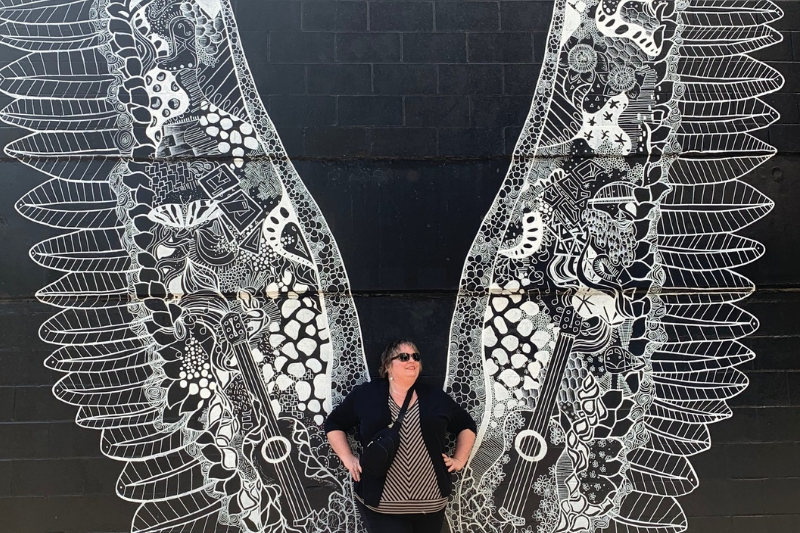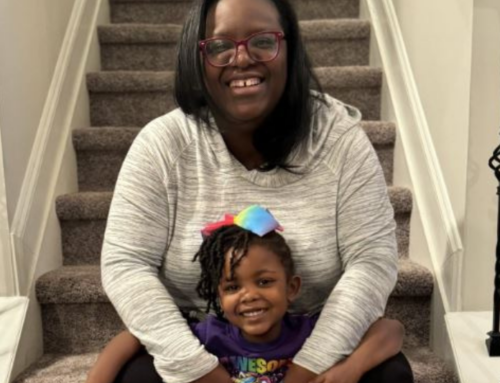As a creative, Jennifer Wilkins has made a career of collaging opportunity, interests, and passions. Earning her bachelor’s degree in fine art, she quickly headed creative production teams to apply creative problem-solving skills and curiosity to program start-up and development. She was the founding administrator of the Pediatric Surgery Residency Program and Pediatric Trauma Program at the Monroe Carrell Children’s Hospital at Vanderbilt University Medical Center and went on to become the founding administrator of the Center for Cancer Targeted Therapies at Vanderbilt-Ingram Cancer Center. Most recently, she served in multiple roles providing support and services to those impacted by cancer at Gilda’s Club Middle Tennessee. Now, she gratefully reflects upon integrating education, research, mental healthcare access, and expressive arts, and the path to Change Matrix (CM).
What drew you to CM?
I absolutely lit up when I read the values and approach Change Matrix included in the job posting. As a generalist, highly skilled across a broad range of fields, the acknowledgement of lived experience as an asset was a refreshing validation. As an advocate, creative, and developer, an organization which states its approach is to not only accept, seek, celebrate, and support difference, but thrive on it, is compelling and speaks to my deep appreciation of cultural diversity and commitment to equity. My past involvement on projects intersecting varied professional and personal experiences, provided realization of the reward of purpose-driven work. It is a privilege to serve broadly on a national level. We all have a story. An organization which honors and leverages individuality and provides space to show up as our full selves organically invites innovation and dynamic impact.
What is your role at CM?
I am a Change Consultant and Communication Specialist supporting Change Matrix in general communications and several projects. These include Expanding the Bench® (ETB), the Colorado Equity Compass (CEC), and the National Training and Technical Assistance Center for Child, Youth and Family Mental Health (NTTAC). I’ll provide branding design, data-driven marketing strategies, and various assets including presentations, newsletters, and campaigns to further awareness and engagement for CM and our projects.
Which project are you most excited about?
It’s a challenge to choose one, especially as I’m embracing them all. Certainly, Expanding the Bench promises to be an enormous focus. Because we lead this Initiative — which includes the components of the Leaders in Equitable Evaluation and Diversity (LEEAD) Program, the Advancing Culturally-responsive and Equitable (ACE) Evaluation Network, and field building — we have the opportunity to innovatively and robustly advance this effort to transform the field of evaluation to be culturally responsive and equitable. At this time, both professionally and personally, I’m profoundly honored to contribute to the redistribution of power to change policies, programs and practices across our nation.
The National Training and Technical Assistance Center for Child, Youth, and Family Mental Health (NTTAC) project resonates with me given past work developing and supporting pediatric trauma, healthcare education and services, and evidence-based mental health programming for families and individuals.




